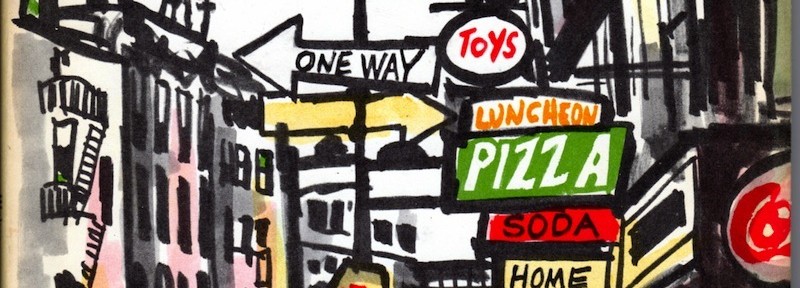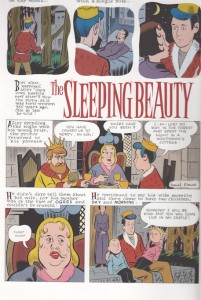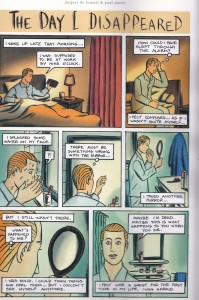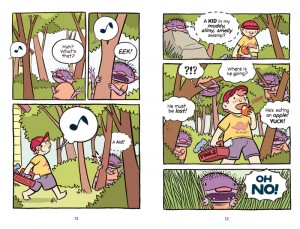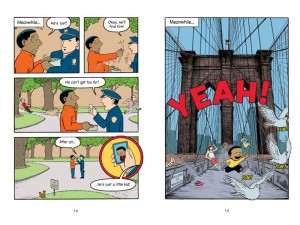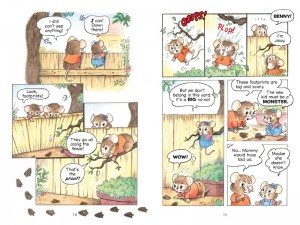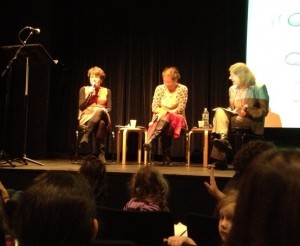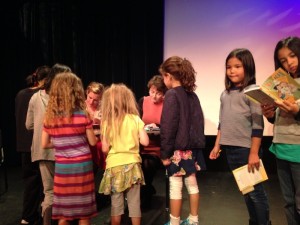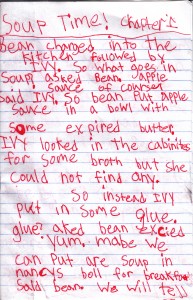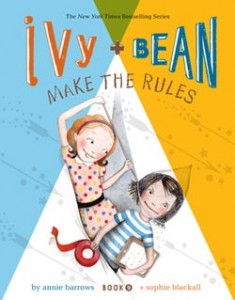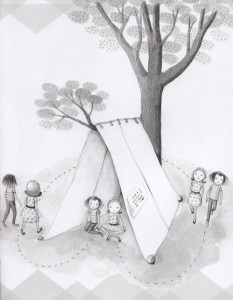There’s nothing like reading about the hardships of life for children centuries ago to squelch (albeit momentarily) the whining of today’s lazy, spoiled middle-class American kids. What mom hasn’t relished the moment her children realized that little Laura and Mary Ingalls spent hours uncomplainingly mending, dusting, fetching water, tending livestock and minding Carrie? Not to mention the fact that they practically danced a jig when Ma made them cakes dusted with white sugar.
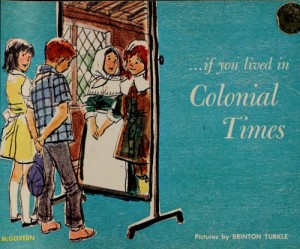 A book that made a huge impression on me when I was a child was If You Lived in Colonial Times. (Written by genius sadist Ann McGovern in 1964.) Reading it, you got the same grotesque pleasure you got from reading the Guinness Book of World Records; knowing it was all true made it totally horrifying and compelling in the best possible way.
A book that made a huge impression on me when I was a child was If You Lived in Colonial Times. (Written by genius sadist Ann McGovern in 1964.) Reading it, you got the same grotesque pleasure you got from reading the Guinness Book of World Records; knowing it was all true made it totally horrifying and compelling in the best possible way.
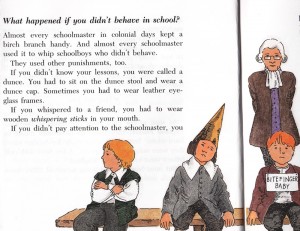 You learned things like: The schoolmaster would whip you with a birch branch if you didn’t know your lessons. If you forgot to bring firewood to school in winter you had to sit in the coldest part of the room. At dinner, children could not say one word, and everybody ate standing up. You could not laugh on Sunday. If you got sick and there was no doctor around, the town barber would do the bloodletting. And instead of everybody lying on an overstuffed sofa in front of the big-screen TV, this is what you’d be doing with your family on a Tuesday night:
You learned things like: The schoolmaster would whip you with a birch branch if you didn’t know your lessons. If you forgot to bring firewood to school in winter you had to sit in the coldest part of the room. At dinner, children could not say one word, and everybody ate standing up. You could not laugh on Sunday. If you got sick and there was no doctor around, the town barber would do the bloodletting. And instead of everybody lying on an overstuffed sofa in front of the big-screen TV, this is what you’d be doing with your family on a Tuesday night:
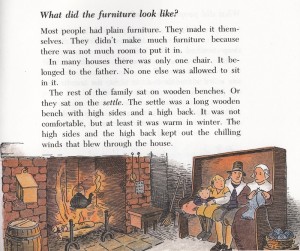
I was psyched to buy my kids a copy of the book when I saw it on display at the Smithsonian gift shop in D.C. a couple years ago. The cover doesn’t quite have the charm of the original, but what irritated me was the fact that the “new and updated!” version (below) is missing an illustration that I found particularly fascinating as a child.
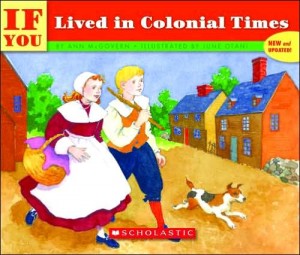
It was a picture of the colonialists sitting in church on Sunday. According to the book, there was someone called a tithing man who walked around the meetinghouse with a long wooden pole with a wooden knob at one end. If you fell asleep during church, he knocked you on the head. I remember loving a double-page illustration of the moment he was about to rap some poor, snoring colonialist on the noggin. For some reason, it’s not in the new edition. Tis a shame.
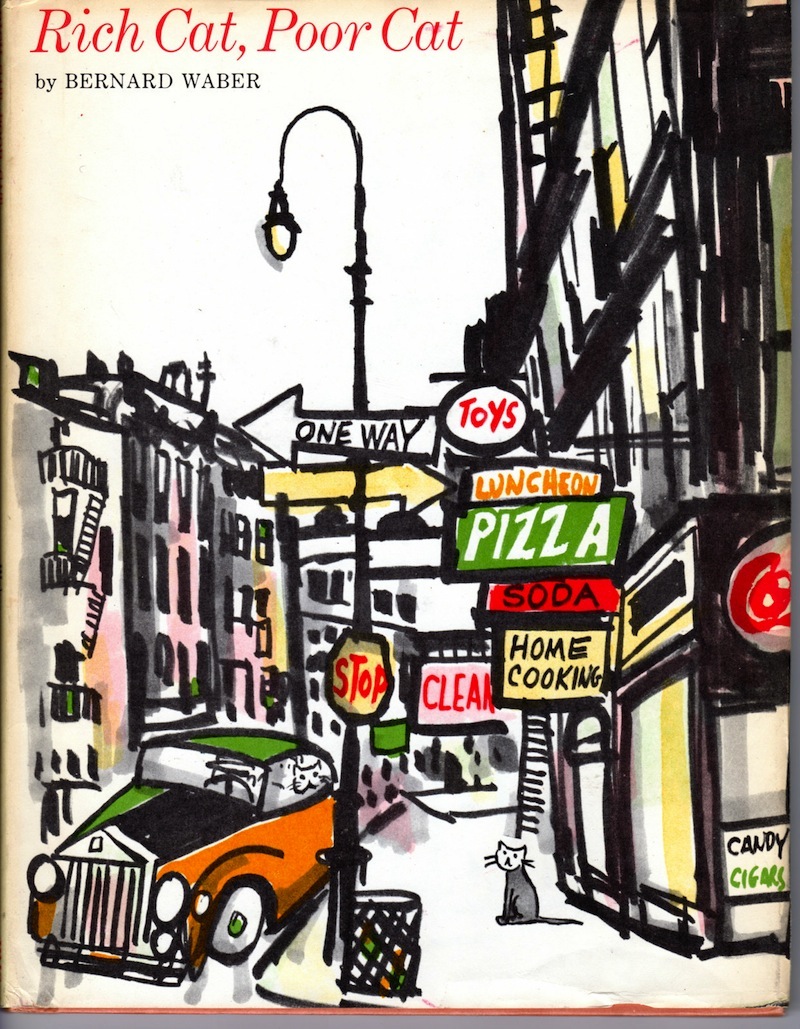 The concept couldn’t be simpler. Each left-hand page shows the cushy, pampered life of a rich cat (clearly, a member of cat society’s 1%). Each right-hand page shows the
The concept couldn’t be simpler. Each left-hand page shows the cushy, pampered life of a rich cat (clearly, a member of cat society’s 1%). Each right-hand page shows the 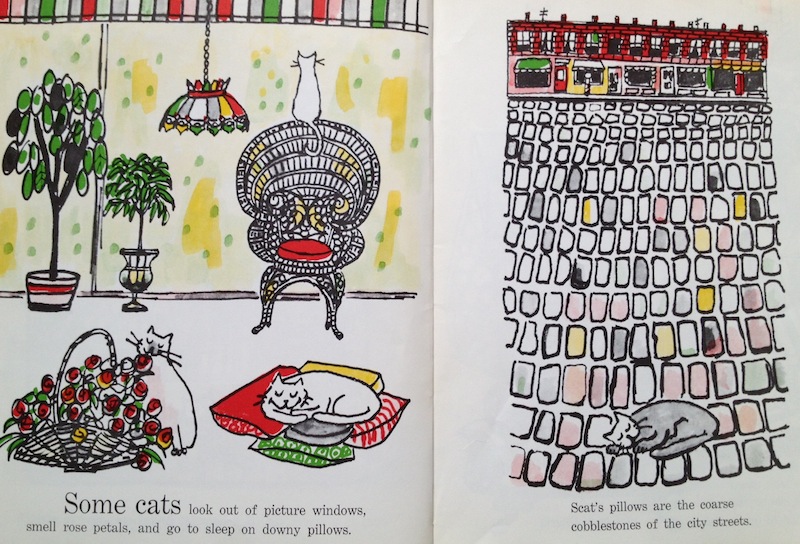 There isn’t much of a plot per se, but no matter. It’s sweet, witty, and gorgeous to look at. The scenes of ’60s New York are stunning.
There isn’t much of a plot per se, but no matter. It’s sweet, witty, and gorgeous to look at. The scenes of ’60s New York are stunning.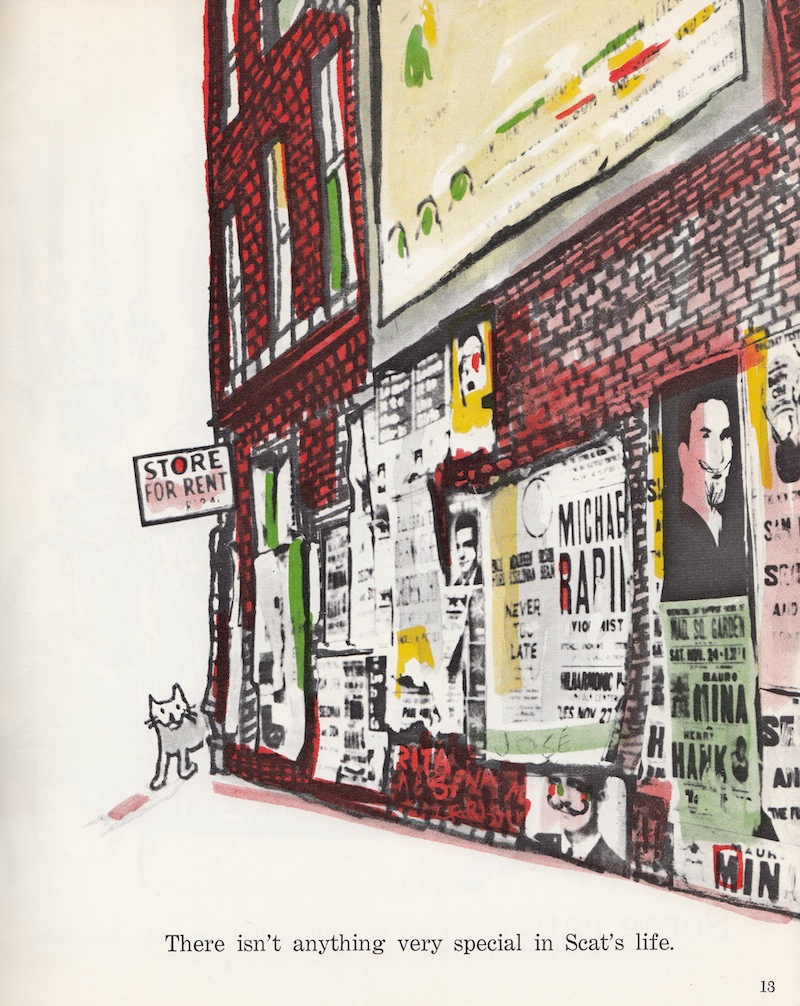 How can you not love the outfit on this woman?
How can you not love the outfit on this woman?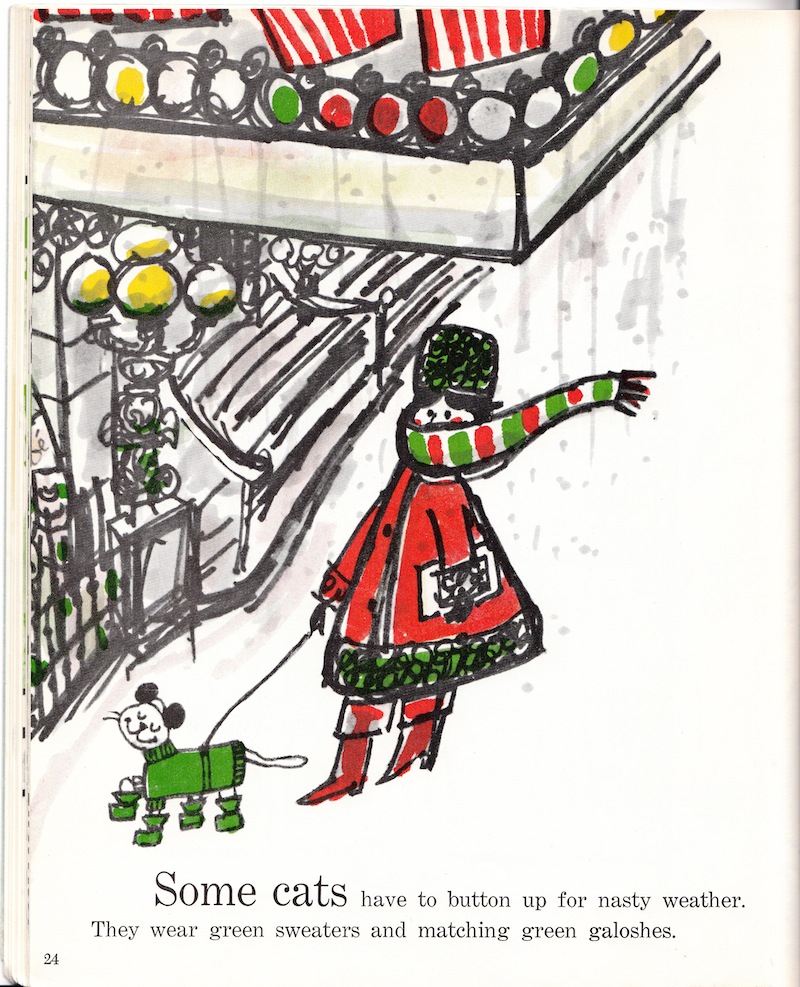 Of course, there’s a happy ending for Scat, with a great little twist on the last page. It’s hard to get hold of an original copy of this book (there’s a seller on EBay offering it right now for $99), but I just bought a copy of the 1970 Scholastic paperback on Etsy for $3.00. Now I won’t be tempted to “lose” my library’s copy.
Of course, there’s a happy ending for Scat, with a great little twist on the last page. It’s hard to get hold of an original copy of this book (there’s a seller on EBay offering it right now for $99), but I just bought a copy of the 1970 Scholastic paperback on Etsy for $3.00. Now I won’t be tempted to “lose” my library’s copy.
